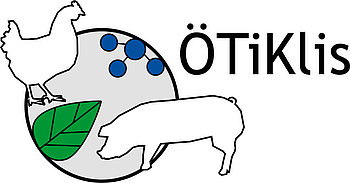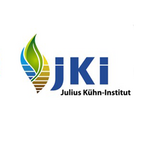Organic livestock farming as a contribution to climate protection - with a focus on animal diseases and epidemics (ÖTiKliS)

Objective
Optimising animal health by developing adapted husbandry systems in harmony with the lowest possible GHG emissions
Methodology
- Evaluation of organic and conventional pig and poultry farms with regard to animal health, structural conditions and biosecurity measures, as well as carrying out supplementary emission measurements
- Determining the carbon footprint of different types of housing and the impact of construction measures on emissions
- Preparation of recommendations and decision trees regarding measures and provision of information in an online tool for agriculture
Climate effect under consideration
Impact of animal health on the carbon footprint of farm animals (pigs, poultry)
Publications
Oettler MJ, Stumpf G, Schulz K, Todte M, Hüttner K, Heyne H, Mettenleiter TC, Conraths FJ, Sauter-Louis C (2025): Strict Biosecurity and Epidemiological Segmentation Enable Partial Culling During a Highly Pathogenic Avian Influenza Outbreak. Vet Med (Auckl). 2025;16:25-37
https://doi.org/10.2147/VMRR.S539444
Herrmann, A, Schulz, K, Wischnewski, N, Brüssau, J, Zeiler, E, Sauter-Louis, C. (2024): Risk Awareness and Attitude of Ger-man Farmers towards Biosecurity Measures. Animals 2024, 14, 1102. doi.org/10.3390/ani14071102
Contact persons
Friedrich-Loeffler-Institute, Institute of Epidemiology
Dr. Anna Herrmann
Natalie Wischnewski
University of Applied Sciences Weihenstephan-Triesdorf
Link to project page: ÖTiKliS




